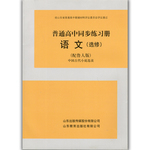


 海淀黄冈名师导航系列答案
海淀黄冈名师导航系列答案 普通高中同步练习册系列答案
普通高中同步练习册系列答案科目:高中英语 来源:2013-2014学年河南省高三期中考试英语试卷(解析版) 题型:阅读理解
Dan Bebber is a senior research fellow at the University of Exeter in Britain. He says research has shown that wild plants and animals are moving toward Earth's North and South poles as the planet warms.
Mr Bebber wanted to know if the same thing was happening with organisms that attack agricultural crops. He examined reports of first sightings of new insects and diseases around the world. The records came from CABI - the Centre for Agricultural Bioscience International. He says the group began collecting information from developing and industrialized countries years ago.
Dan Bebber and his research team studied 612 different organisms - from viruses and bacteria to insects like beetles and butterflies. They found that since 1960, crop pests and diseases have been moving toward the poles at an average rate of about 3 kilometers each year. Mr Bebber says this puts the most productive farmland in the world in danger.
"As new species of pests and diseases evolve and potentially the environment for them becomes more amenable at higher latitudes, the pressure on the breadbaskets of the world is going to increase."
Farmers face other threats. Invasive species passed through trade are also causing problems. Gene Kritsky is an Entomologist at the College of Mount St. Joseph in Ohio. He specialises in the study of insects. He says climate change may improve conditions for some invasive species.
“It means that species in other parts of the world that might do well in warmer temperatures can now do well in the breadbasket of America.”
Another Entomologist Christian Krupke of Purdue University says the effects of these changes will depend very much on the crop, the insect and the disease. But he says the research is a warning sign that people should care about climate change and do something about it.
1.The purpose of Dan Bebber’s research was to find ______.
A. if farmland could be moved to colder places thanks to global warming
B. if diseases and insects harmful to crops were going towards colder areas
C. if organisms were moving to the north and south poles
D. if the number of crop pests was increasing
2.According to Dan Bebber, if crop pests keep moving towards the poles, ______.
A. it will be hard for farmers to kill them
B. the most productive farmland will produce more crops
C. the earth will not produce enough food to support the world
D. the conditions for some crops may be improved
3.Which of the following is not a threat that farmers have to face?
A. Climate change helps crop pests to adapt to new environment.
B. Foreign species are brought in by trade.
C. Invasive species doing well in warmer places might do well in America.
D. The impacts of the climate and species changes on crops are not easy to determine.
4.The underlined word “amenable” in the fourth paragraph most probably means ______.
A. agreeable B. terrible C. unfriendly D. changeable
查看答案和解析>>
湖北省互联网违法和不良信息举报平台 | 网上有害信息举报专区 | 电信诈骗举报专区 | 涉历史虚无主义有害信息举报专区 | 涉企侵权举报专区
违法和不良信息举报电话:027-86699610 举报邮箱:58377363@163.com